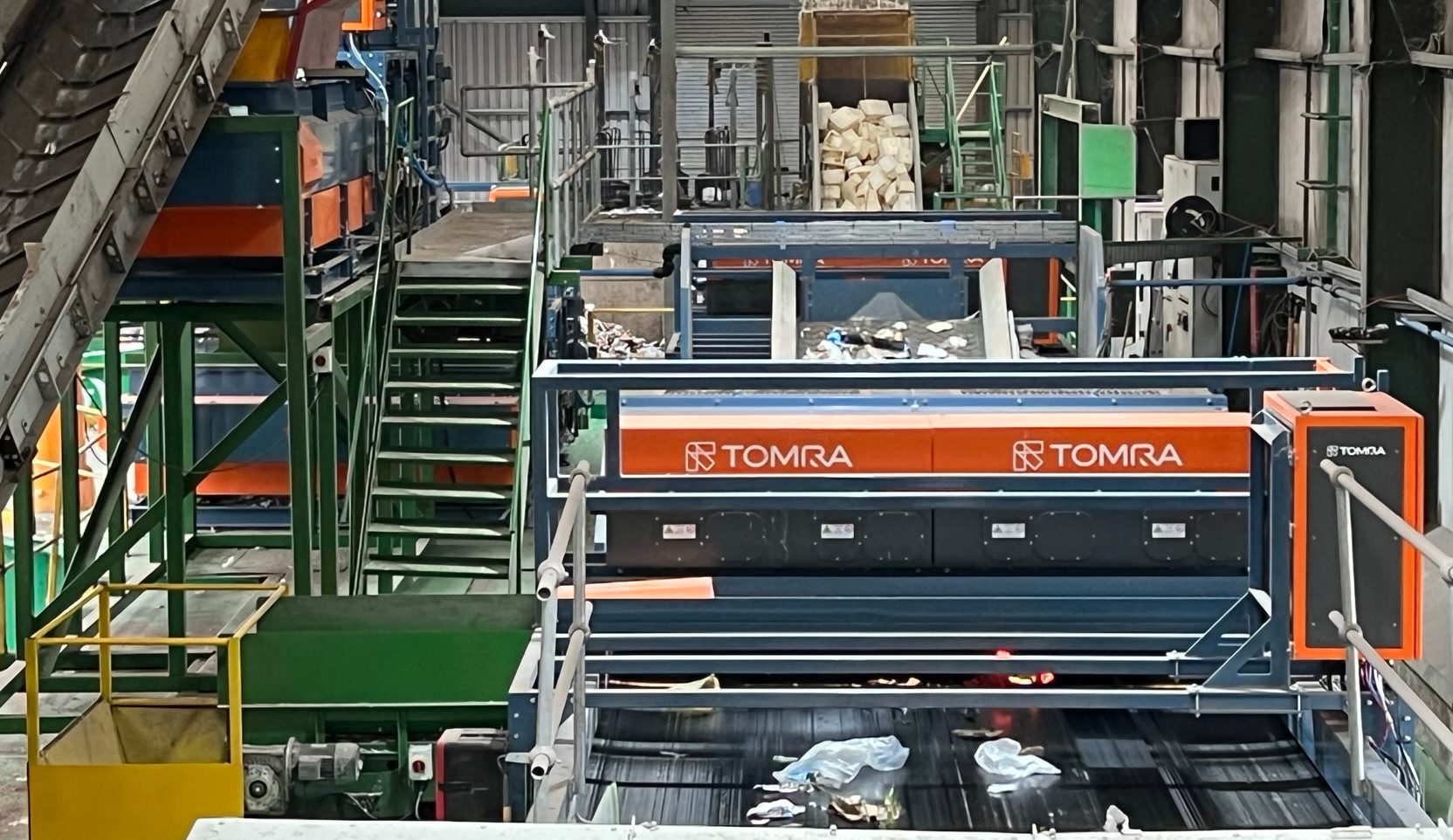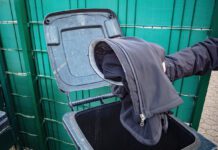
Essex-based waste management and recycling solutions provider, Green Recycling, has achieved its goal of becoming the UK’s first picker-less C&I MRF with the help of a sensor-based sorting system able to identify the weight and quantity of plastics, one of a number of features enabled by AI.
Green Recycling initially installed one of TOMRA’s AUTOSORT® units at its C&I MRF in Maldon, Essex, in November 2021 to recover fibre from the end of its process line. This not only doubled the plant’s paper and cardboard production from c.50 tonnes to 100 tonnes per week, but also enabled the company to redeploy four employees – who had previously been manually picking paper and cardboard – into new, more technically-skilled and appealing roles in the plant. Then, in July 2022, Green Recycling shut down the plant to enable the installation of four additional AUTOSORT® units, with the full optimisation of all five units taking place at the start of August. The additional units are programmed to automatically recover plastic film, cardboard, wood, bottles and other rigid plastics, while the original AUTOSORT® unit has switched to recover mixed office paper.
Jamie Smith, Operations Director at Green Recycling, comments: “The four additional AUTOSORT® units from TOMRA were the final piece in the jigsaw for our picker-less MRF project. The COVID-19 pandemic made us realise that we needed to change the business model and move away from our reliance on manual picking. We have always had a keen interest in automation and artificial intelligence, so over the past 18 months we have invested heavily in automation to enhance our screening, sizing and separation operations, including ballistic separators, automated magnets and eddy current separators. Thanks to this investment, and the addition of the additional four latest generation AUTOSORT® units, we can safely say that we are now operating a picker-less MRF and all our former picking staff have been redeployed into other roles within the business.”
The process at Green Recycling’s C&I MRF
On arrival of the infeed material to the plant, the material is sized and then sorted using 2D/3D ballistic separation, with magnets used to remove metals. The 2D items are then further sorted using TOMRA’s pioneering DEEP LAISER technology for its AUTOSORT® units which enables a deeper sorting sharpness to significantly improve the performance of the sorting process. At Green Recycling’s plant, DEEP LAISER enables the identification and subsequent removal of all film-based material, including black waste bags. This material is then sent for further resorting and film recycling/recovery in the UK.
The resulting 2D material then falls to the original AUTOSORT® unit for fibre removal where, thanks to the prior removal of all film-based material, more fibre than before can be removed. This line has seen a reduction in overall waste by 80% by weight.
The 3D items that fall from the ballistic separator pass through a magnet system which reduces the risk of damage to the belts. This material then moves to a wood removal system where a closer pitch on the nozzle system ensures higher push power to eject wood.
Green Recycling has been particularly impressed with the ability of the AUTOSORT® technology to sort and recover plastics, as Jamie explains: “We always knew we had a lot of plastics in our infeed material, but we have never been able to fully quantify its volume and weight. Humans could never pick enough volume to warrant this material being recovered, and the speed at which the material passes through always made recovery difficult even with previous AI technology that we used. However, with the latest TOMRA equipment in place, we are now able to recover significant volumes of plastics at the high purity level required to meet industry demand. This has dramatically improved our facility’s overall recycling rates.”
The final stage in the process sees a fibre clean-up of any out of shape card, books and paper, of which there are large volumes in the plant’s infeed material. The way that two of the AUTOSORT® units have been positioned in the plant gives Green Recycling further scope to link them together and create a separate OCC and fibre grade in the future should they wish.
Jamie concludes: “We are recovering a far greater tonnage and a much wider range of materials than ever before. Our production line is no longer at the mercy of holiday schedules, absences or the continual challenge of searching for staff to undertake undesirable manual picking work. The investment in the new equipment has actually created two new skilled technical operator roles within the business to manage and maintain the TOMRA equipment. Now, even if we were to have several staff members off at the same time, our plant can continue running.
“The AUTOSORT® units have enabled us to future-proof our operations and ensure we are able to adapt to any future changes in C&I waste arisings. This is a hugely positive step for the business and one which will enable us to invest further in technology and staff development both now and in the future. Importantly, it has also helped us to close the loop on plastics recycling by keeping material in the chain.”







